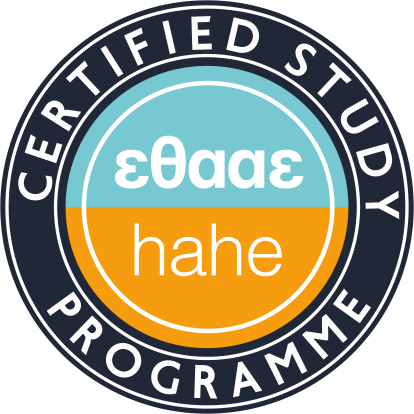Full-Time Specialization in Financial Management
Full Time Course of 12-month duration
The Master’s Program in Financial Management is equal to seventy five (75) ECTS credits (European Credit Transfer and Accumulation System), and includes twelve (12) courses , worth five (5) ECTS credits each, as well as the MSc thesis, worth fifteen (15) ECTS credits.
The program includes four (4) preparatory courses in each specialization a) Financial Management b) Data Driven Financial Management and c) Sustainable Financial Management which are offered in September each year. Final registration at the program requires successful attendance and examination in all preparatory courses, unless one is exempted upon the approval of the Program's Committee.
The lectures are conducted in the morning or in the afternoon.
FINANCIAL MANAGEMENT SPECIALIZATION
| Preparatory Course - 4 Weeks | |
|---|---|
|
Pass |
|
Pass |
|
Pass |
|
Pass |
1st Semester
- Financial Management
-
The objective of this course is to describe the theory and practice of the main topics in financial management at the postgraduate level. The course is organized into three parts. The course starts with an overview of the time value of money, valuing bonds, equity valuation, and cost of capital. The second part pertains to capital budgeting and the financial criteria used for making investment decisions. Finally, we consider issues related to payout policy, leverage and capital structure.
- Econometric Methods
-
The past few decades have been characterized by an extraordinary growth in the use of quantitative methods in the analysis of various asset classes; be it equities, fixed income securities, commodities, and derivatives.In addition, both financial economists and practitioners have routinely been using advanced mathematical, statistical, and econometric techniques in a host of applications including, asset pricing, portfolio management, investment decisions, and risk management, among other.This course attempts to provide an introductory-level basis for the learning of such techniques.The purpose is twofold, to provide research tools in financial economics and comprehend investment designs employed by practitioners.
- Accounting For Corporations I
-
The primary objective of the course is to introduce students to the basic concepts of financial accounting based on international financial reporting standards. Upon successful completion of the course, the students will be able to understand the structure and key line items of the main financial statements (balance sheet, income statement, and statement of changes in equity) of the firms. They will also familiarize themselves with the accounting treatment for cash and cash equivalents, accounts receivable, inventories, and non-current assets.
| 2nd Bimester Period | ECTS |
|---|---|
|
5 |
|
5 |
|
5 |
2nd Semester
| 3rd Bimester Period | ECTS |
|---|---|
|
5 |
|
5 |
|
5 |
| 4th Bimester Period (students must select three courses equal to a total of 15 Credit Units) | ECTS |
|---|---|
|
5 |
|
5 |
|
5 |
|
5 |
|
5 |
|
5 |
|
5 |
|
5 |
| Dissertation | ECTS |
|---|---|
|
15 |



